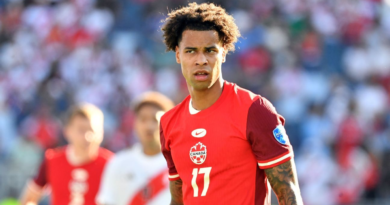Sources: Correa to Twins after Mets talks fizzle
Star shortstop Carlos Correa and the Minnesota Twins are finalizing a six-year, $200 million contract, pending a physical, after weeks of discussion to salvage a deal with the New York Mets broke down, sources familiar with the situation told ESPN.
The stunning turn caps a whirlwind month for Correa, who agreed to a 13-year, $350 million contract with the San Francisco Giants on Dec. 13. After the Giants raised concerns about Correa’s surgically repaired right leg, he pivoted quickly to the Mets, who offered him a 12-year, $315 million contract. The Mets flagged his physical as well, and efforts to amend the deal fell apart, leading Correa back to Minnesota, where he signed after a topsy-turvy offseason last year, too.
The agreement includes a vesting option for four years and $70 million and will become official if Correa passes a medical review, which is currently taking place. The focus will be on his lower right leg, which he broke in 2014 during a minor league game, and a source said the Twins expect to be comfortable with it. Correa has not spent time on the injured list for a right leg ailment in his eight-year big league career, but Giants and Mets medical personnel were concerned about how the leg would age.
Correa, 28, is among the game’s best shortstops and entered the winter in hopes of securing the mega-contract that eluded him last offseason, when he settled for a three-year, $105.3 million deal with the Twins that included an opt-out after the first season. Correa hit .291/.366/.467 with 22 home runs and high-level defense, leaving the Twins hopeful he would consider returning after he filed for free agency.
Minnesota never intended to play in the $300 million-plus neighborhood, and after Aaron Judge returned to the New York Yankees, the Giants, in search of a franchise player, blew past that number for Correa, leaving the Twins to try to salvage their winter by signing outfielder Joey Gallo and catcher Christian Vazquez. All the while, they lurked as the fallback plan for Correa, thrilled to potentially add him to a lineup that also includes All-Stars Byron Buxton and Luis Arraez in addition to top prospect Royce Lewis, Jose Miranda, Jorge Polanco, Max Kepler, Nick Gordon, Alex Kirilloff and Trevor Larnach.
Should Correa pass his physical — the Twins are more familiar with his medical situation than any other team and earlier in the winter considered a 10-year, $285 million deal, which is around what the current deal would wind up at if the option vests — Minnesota will enter 2023 with strong hopes of winning the AL Central.
The Mets, meanwhile, will come into spring training without the player owner Steve Cohen told the New York Post “puts us over the top” right after the team and Correa agreed to terms. It was the shock of the winter, a middle-of-the-night coup by the Mets that took the most expensive team in baseball history and added a two-time All-Star and vaunted postseason performer who would push the payroll close to $500 million.
What came next mirrored what had allowed the Mets to have a shot at Correa in the first place. When the Giants balked at giving Correa the fourth-largest deal in baseball history because of the leg, he wasted no time, agreeing with the Mets less than 12 hours later. After the Mets’ physical raised similar questions, Correa’s agent, Scott Boras, continued to engage in discussions with the team, cognizant that a second failed physical could potentially torpedo Correa’s market. Talks with the Mets approached three weeks, and the lack of substantive progress pushed Correa back onto the market, questionable medicals and all.
They certainly wound up having an effect on the deal’s length, although Correa’s average annual salary of $33.3 million will be the second highest at the position, behind Mets shortstop Francisco Lindor, whom Correa had planned on playing next to at third base. The deal falls short in total dollars of the 11-year deals signed by fellow shortstops Trea Turner ($300 million with Philadelphia) and Xander Bogaerts ($280 million with San Diego) this winter but trails only Judge’s nine-year, $360 million contract in annual value.




